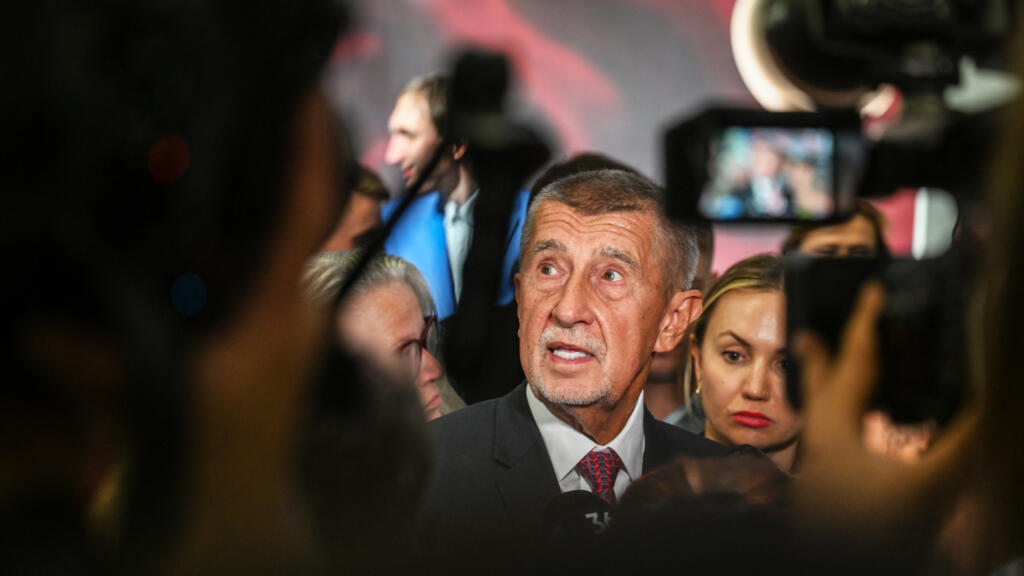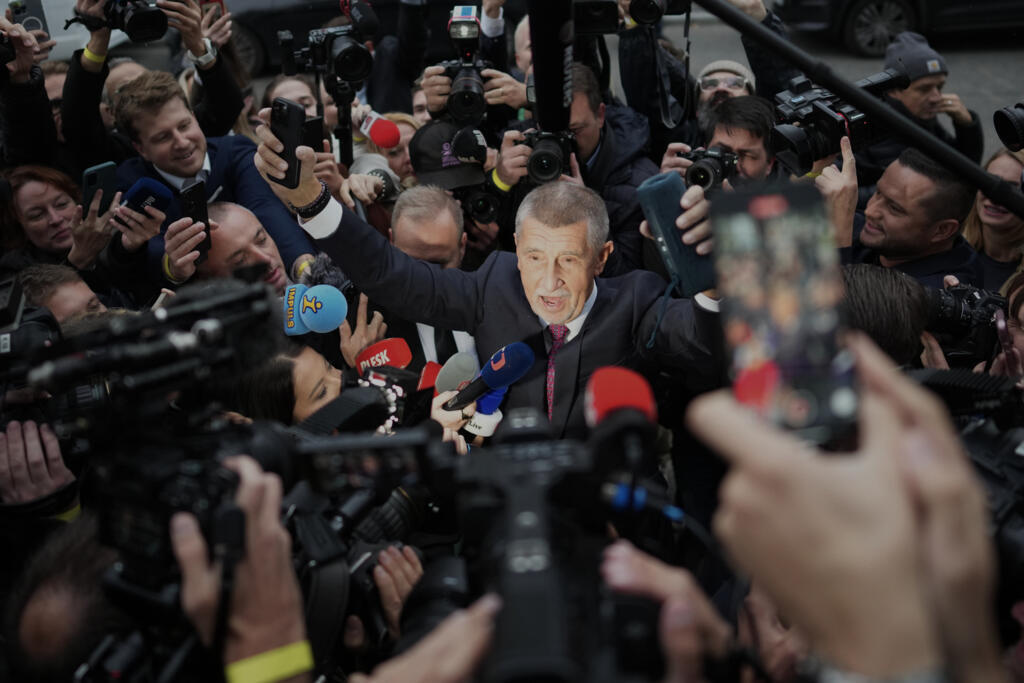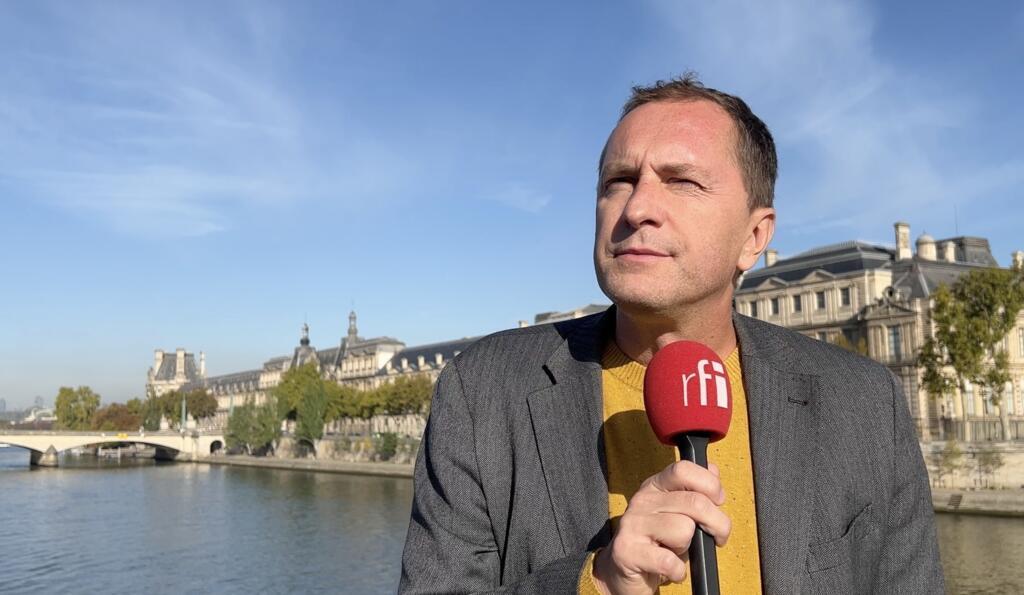
The Czech Republic's parliamentary elections returned Andrej Babis and his populist ANO movement to power, marking a decisive break from the outgoing government and reflecting a broader trend within the European Union. As the billionaire looks for partners on the right to secure a majority, anti-corruption activist David Ondracka, former head of the Czech Republic’s branch of Transparency International, tells RFI why Babis’s victory isn’t necessarily the ideological shift it might seem.
For many voters, the centre-right government of incumbent Petr Fiala had failed to tackle inflation, energy costs and stagnating wages.
That disillusionment paved the way for a populist comeback. “It was an easy path for Babis to take power,” Ondracka told RFI, referring to parliamentary elections held on 3 and 4 October.
Without a clear majority, Babis needs junior partners for a coalition government. The likely candidates are two smaller right-wing parties, the anti-immigration, eurosceptic Freedom and Direct Democracy (SPD) and the conservative, anti-Green Deal Motorists for Themselves.
Meanwhile, Babis’s personal dominance in the government is expected to be total.

Whatever coalition Babis chooses, he will wade into a “monstrous conflict of interest, because he is milking the state funds and subsidies”, claims Ondracka, a long-time critic of the billionaire agriculture tycoon.
He views Babis less as a geopolitical threat than as a self-interested pragmatist: “He is not a pro-Russian politician. He is pro-European, because that’s where he sees the most money for his own pocket.”
'Trumpist' billionaire wins Czech election, spelling shift on Ukraine
Opportunist
While some compare Babis to Hungary’s Viktor Orban or France’s Marine Le Pen, Ondracka sees him as more opportunistic than ideological: “Babis is not right-wing or left-wing. He tells you whatever you want to hear. What really matters for him is his own pocket and business interests.”
For Ondracka, this absence of ideology is “on one hand scary, on the other hand maybe even a relief”.
That ambiguity may end up working in favour of the status quo. Although Babis often positions himself against domestic elites and Brussels bureaucrats, he knows that EU membership, and crucially, EU funds, underpin his own economic power base.

Babis’s fortune, estimated at more than €3.7 billion, comes from the Agrofert conglomerate. Founded as a fertilizer company, it now has interests in multiple industries from construction to energy to media, and operates in both Europe and China.
Babis was its sole proprietor until 2017, when he was forced to transfer ownership to trusts controlled by his family to comply with conflict of interest rules.
He is embroiled in a legal battle against allegations that he fraudulently claimed €2 million of EU subsidies earmarked for small businesses, charges he rejects as a smear campaign.
European trend
Ondracka sees the Czech election results as part of a wider European pattern. “The elections reflect the very same societal divisions as we see in basically every European country,” he told RFI. “There are the city elites, and then you have people who simply feel betrayed by these elites, and they don’t trust them.”
This erosion of trust, he thinks, has fuelled resentment across the continent, with populists and nationalists offering “simple solutions” to voters seeking a break from liberal centrism.
Even if Babis’s populism is pragmatic rather than ideological, his win reinforces the EU’s broader rightward turn. The ANO victory also highlights the weakening of traditional party structures that once anchored Czech politics in predictable coalitions.
Europe at a crossroads as democratic erosion deepens, report warns
Meanwhile, the Visegrad Four – the alliance that unites the Czech Republic with Hungary, Poland and Slovakia – is unlikely to gain new momentum from Babis’s return.
“It seems that Babis will agree on some issues with Orban and [Slovak Prime Minister Robert] Fico,” Ondracka said, “but there is also huge opposition from Poland and from [Polish Prime Minister Donald] Tusk, so I don’t think the Visegrad Four will be a very actionable group. It will remain politically irrelevant within the EU.”
Still, cooperation inside the group will continue “because these are our neighbours, and we have to collaborate on many issues”, he says.
Outside influences
Babis has invited comparisons with United States President Donald Trump, declaring he wants to “make the Czech Republic great again”.
While some Czech politicians may “take inspiration and try to have a similar vocabulary” to hard-right US populists, Ondracka says the impact on the country’s politics is modest: “People simply vote according to their vital economic interests.”
From Washington to Warsaw: how MAGA influence is reshaping Europe’s far right
Russian influence, by contrast, remains a persistent undercurrent, amplified by disinformation networks.
Yet the election showed voters’ resistance to pro-Kremlin narratives. “Czech elections actually showed that majority of the Czech population doesn’t buy that narrative and they don’t want to come back to Russian influence at all,” Ondracka told RFI. “Most of the parties who were clearly pro-Russian actually lost.”
The Czech Republic bears tangible costs from the war in Ukraine, he added, including some half a million refugees in a country of 10 million. This has strained public services, but also deepened solidarity with Kyiv.
There is reason to believe, then, that the country’s pro-European mainstream remains intact, Ondracka concludes – even with Babis’s populist touch.







